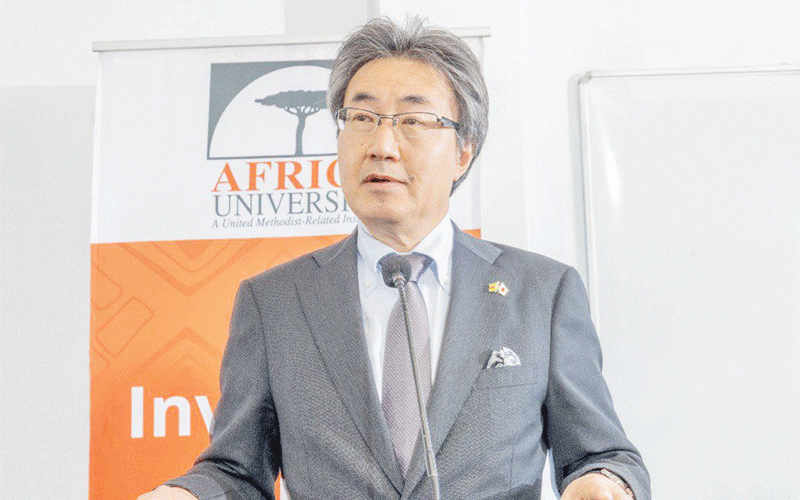
ABOUT 26 000 food-insecure households are set to benefit from the Japan humanitarian fund as Zimbabwe grapples with severe effects of the El Niño-induced drought, NewsDay can reveal.
The aid comes at a time when the number of people in need of food aid continues to rise, with government indicating that at least nine million people are food insecure and would require assistance until March next year.
President Emmerson Mnangagwa in April this year declared the drought a state of national disaster, with the United Nations Office for the Co-ordination of Humanitarian Affairs in Zimbabwe announcing a Drought Flash Appeal of US$429,3 million.
Speaking during the Japan donation signing ceremony in Harare yesterday, Japanese ambassador to Zimbabwe Shinichi Yamanaka said the project aimed to deliver food assistance to around 26 000 vulnerable people, with funding totalling approximately US$1,4 million.
“It will provide the most vulnerable people with a basket of rations comprising cereals such as maize and rice produced in Japan, vegetable oil and pulses to alleviate food access shortages.
“The 2023/24 production season, as you are aware, was marked by an unprecedented El Niño-induced drought, the worst in 43 years. The production of maize, the main cereal, has fallen by about 70% compared to last year,” he said.
The diplomat said he was concerned about the food insecurity situation in Zimbabwe, adding that Japan would continue supporting the country to allow all Zimbabweans to meet their food security needs.
World Food Programme country deputy director Billy Mwiinga said the El Niño-induced drought had significantly impacted agricultural production and livelihoods throughout Zimbabwe.
- COP26 a washout? Don’t lose hope – here’s why
- Under fire Mnangagwa resorts to Mugabe tactics
- How will energy crunch transition impact transition to renewables?
- COP26 a washout? Don’t lose hope – here’s why
Keep Reading
“Today’s contribution of JPY200 000 000, equivalent to US$1,4 million, follows Japan’s previous donation of US$1,36 million earlier this year,” Mwiinga said.
“This timely and critical additional funding from the Japanese government will allow us to provide nutritious food assistance to over 26 000 of the most food-insecure people. We are grateful for Japan’s unwavering support in our mission to end hunger and promote resilience.”
Mwiinga said to support ongoing efforts to end food insecurity and abject poverty, WFP, in collaboration with the government, would implement the lean season assistance programme, which would provide cereals, pulses and vegetable oil to those in greatest need.
He, however, reiterated the need for ongoing efforts to ensure the successful mitigation of hunger caused by the El Niño phenomenon.
“We must continue collaborating, innovating and strengthening our efforts to increase resilience and ensure a food-secure future for all.
“At WFP, we are deeply committed to achieving this goal through anticipatory action and resilience building. We understand that providing immediate assistance is insufficient; we must invest in the future,” Mwiinga said.
Public Service, Labour and Social Welfare deputy minister Mercy Dinha said the partnership between WFP and Japan exemplified the spirit of solidarity and collaboration that is essential in the fight against hunger and malnutrition.
“The support we receive today not only reflects Japan’s commitment to maintaining assistance, but also underscores the importance of international co-operation in tackling the challenges faced by our vulnerable populations,” she said.
“The contribution from Japan will enable WFP to enhance its operations and reach more households that are struggling to put food on the table.”
Dinha reaffirmed government’s commitment to working hand-in-hand with WFP, saying their collaboration has been instrumental in implementing effective food assistance programmes.









